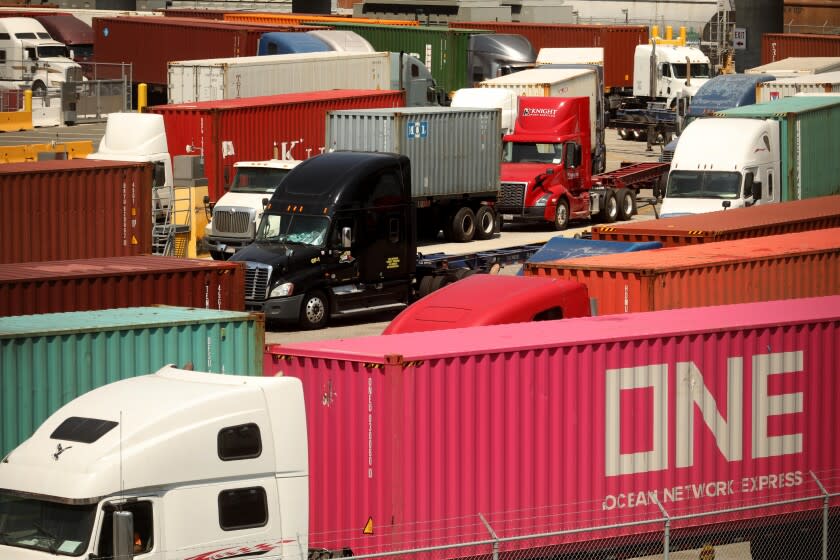Biden administration pushes plan to ease truck driver shortage

- Oops!Something went wrong.Please try again later.
The Biden administration will announce a three-pronged plan to recruit and retain truck drivers in an effort to combat a driver shortage that has contributed to the supply chain problems plaguing the globe since the start of the COVID-19 pandemic, senior administration officials said Wednesday.
The officials said the plan will not only look at the immediate driver shortage but also address long-standing challenges in the trucking industry that predate the arrival of COVID-19.
The plan includes connecting veterans who left the service with extensive military trucking experience — 70,000 over the last five years — with trucking jobs as they transition to civilian life.
The administration will be working closely with the private sector to engage in a “90-day apprenticeship challenge” to recruit as many employers as possible to start registered apprenticeships.
Apprenticeships, a popular form of workforce training in many industries, are an “earn and learn” model that enables interested truck drivers to learn on the job, the administration officials said.
“We’re willing to say that any employer that’s willing to step up and be part of registered apprenticeship, we can help them launch a new program within 48 hours,” said one of the officials, who, like the other administration officials, requested anonymity to provide details of the plan before the official announcement.
The Biden administration hopes to expand the number of apprentices in the trucking industry, which currently number more than 10,000.
Transportation Secretary Pete Buttigieg, Labor Secretary Marty Walsh and National Economic Council Director Brian Deese are scheduled to announce the plan Thursday after a roundtable with trucking industry and labor leaders.
The departments of Labor and Transportation will detail steps they will take to lay the foundation for a stronger trucking workforce overall, including working with states and providing federal funding opportunities to streamline the licensing process for new drivers.
The administration officials referenced President Biden’s recently passed infrastructure bill, which included a pilot program to lower the minimum age for interstate truck drivers to 18 from 21 to help the industry target young people fresh out of high school.
The bill also includes funding for compensation studies to understand the hours truck drivers work and hours spent unpaid while waiting to load and unload cargo.
Administration officials said they will also form a task force to address the recruitment and safety of women into the work force.
The ports of Los Angeles and Long Beach are facing unprecedented gridlock as the global supply chain struggles with shortages of cargo ships and containers and a lack of workers willing to drive trucks or handle inventory in warehouses for the wages offered.
The driver shortage is a major factor in the gridlock, as trucks carry more than 70% of domestic cargo shipments. Like many other workers, truck drivers have been slow to return to their jobs, and the arrival of the Omicron variant of the coronavirus may add to the hesitation.
This story originally appeared in Los Angeles Times.
